After a long hiatus, we’re back with another episode of Building The Brand. Most crucially, this episode is hosted by MAEKAN founders Eugene Kan and Alex Maeland, who talk about the inception of Adam Studios, the creative agency they founded that ties into and supports MAEKAN as a company and independent publication.
Alex Maeland: Can you hear me?
Eugene Kan: Okay. I think it’s okay. Oh wait, I gotta send you this thing. I just send you the working document. It’s been a minute since we’ve recorded one of these.
Alex: True. (Alex playing on his Apple device of choice) Wow, finding some good inspo here.
Eugene: Ironic Alex is working on inspo…for an agency project, which is the topic of this Building The Brand.
Alex: Damn, this image is dope!
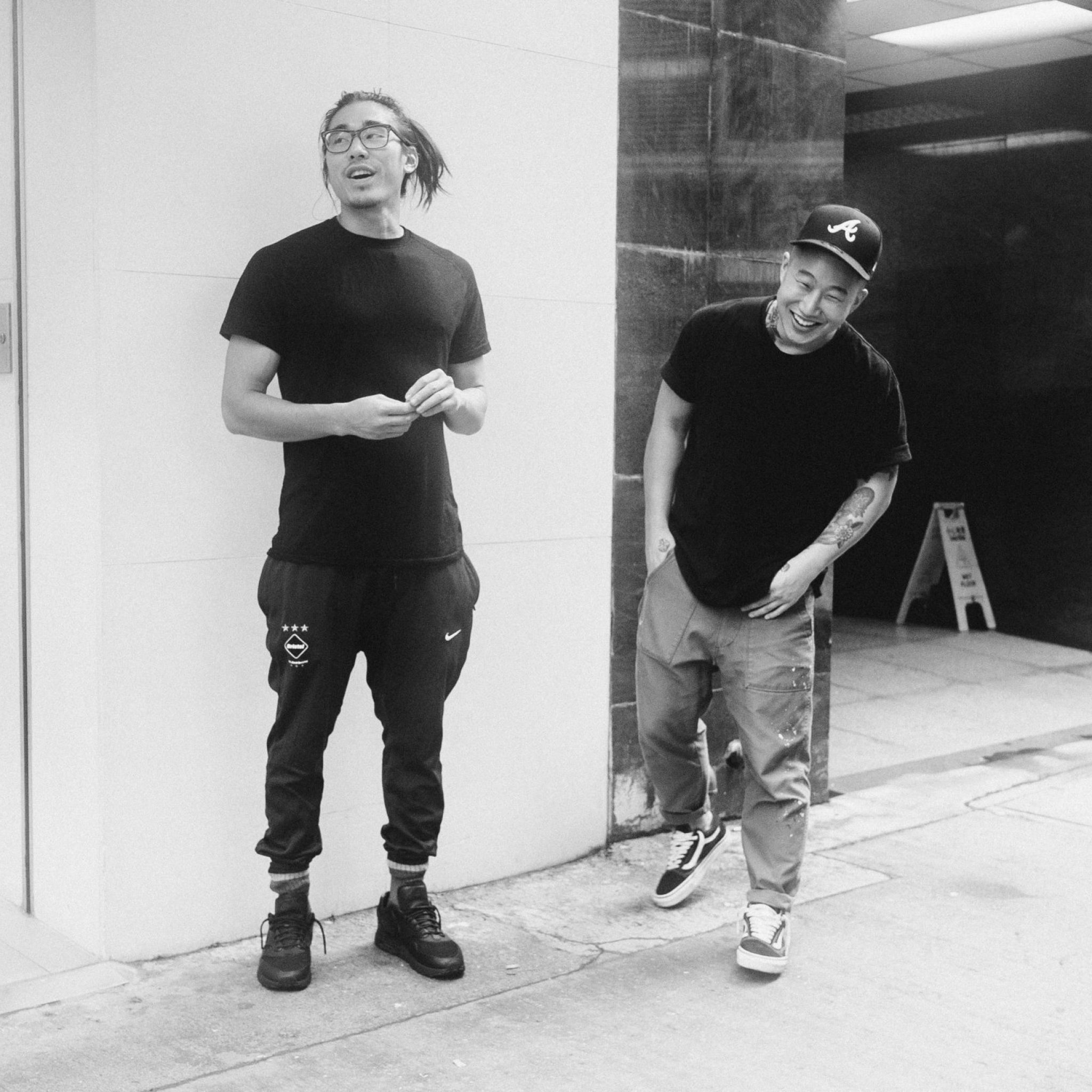
Eugene and Alex enjoying a laugh outside the former MAEKAN office.
“Yeah, you can shoot photos, but at what point can you actually oversee the whole creative supply chain. And I think that’s the one thing that once we started getting more involved in that you soon realize that, ‘oh, actually there is a role because the projects become more complex, they need more points of view..”
— Eugene
Eugene: Where to start. So I guess the primary thing we’re going to talk about is the evolution of how MAEKAN makes money — or not make money — and also the launch of Adam Studios. For some people that might not be familiar, we do a thing called Adam Studios. Can you tell people what it is?
Alex: The elevator pitch is that it’s a multidisciplinary creative agency, but the layman’s term of that is it’s a vehicle with which you or I do projects for brands, whether that’s via our skillset, our network or our expertise and understanding of working in certain pockets of culture over the years.
Eugene: Yeah. It comprises essentially what, two people, me and you? And this is something that I have been thinking about a lot, but also I enjoy the analogy is the ‘Hollywood approach’ — not necessarily Hollywood in terms of glitz and glamor, but more-so Hollywood in the sense that you might have a core team that brings in people as projects arise. (Alex: Yeah) I think that’s actually been very helpful because. I don’t want to say I’m “a prophet,” but when we first started in mid-2019, I was like “yo man, we should probably try to run this thing super lean because some shit is gonna hit the fan in terms of a global recession.” And obviously, it arrived in a form that no one could have predicted per se but, I think that it’s been helpful for us to run like this because it’s like our overhead’s so much lower.
Alex: Not to get too meta about it, but I think you and I both have been on the personal tip lately of educating ourselves on making more ethical decisions and how we consume or how we shop or buy or eat, and things like that. And I think that when I learned a lot of this stuff personally, whether I’m reading something, I’m often comparing it to this idea of the agency and brands and working together. I think that a lot of the agencies are almost not really consuming properly, you know?
I think where we’re at right now with the company with Adam is almost “produce only what you need and consume only what you need” in the process. (Eugene: Yeah) And I think it seems to make more sense. Like, we’re less than a year in, but like we’ve been able to be really proud of the work we’re doing and it’s coming out at a higher caliber at a much lower budget to the brands because we’re investing dollar-for-dollar more into the right places versus it getting skewed randomly into random things. It’s like when you donate to a nonprofit and a lot of people don’t want to donate to really big organizations ’cause they know a lot of that dollar, those dollars go into administrative jargon for a nonprofit versus going direct to the children or whoever.
Eugene: By virtue of us running it so lean, that means we don’t have an office. Like, you and I like work from home before “work from home” was a thing. (Alex laughs) No overhead, really. I think that’s the beauty of running digital companies now. It’s you can actually get quite a bit done without needing a ton of overhead.
And I think to use that example, if someone comes to us with, let’s say a $10,000 budget, right? Since it’s only you and I that need to get paid at the end of the day, think of how much more money can go into the crew: They can get paid a certain type of way versus if it’s a $10,000 budget and you only have 15% of that or $1,500 to spend on production, then it changes too.
Alex: And it’s a win-win for everybody because you’re getting to pay people their market rate, you’re compensated for your own time, meaning you and I and the brand. If you do your job properly, the brand will be more happy because dollar for dollar, their budget is going to more creative output and actual deliverables versus, who knows, whatever creative director and associate creative director and intern and interns fees.
Eugene: Like a nice ass office.
Alex: Yeah. And like a crazy office and whatever.
Eugene: If we were to walk it back — what, I’d say 12 or 18 months ago, two years ago — I think there was always part of MAEKAN that was trying to figure out what revenue streams existed among them was like, ‘agency?’ I think that’s generally the easiest way for creative companies to make money as to offer creative services, right? (Alex: Yeah) I think one of the challenges we encountered was, “hey, we’re trying to run a creative agency/content agency inside a publisher.” And I think that actually was something that was a little bit challenging, but I think that from a positioning standpoint, not that many people understood why you would go to an up-and-coming or small publisher for creative services.
Alex: The original question I think for us that kept coming up was it was always difficult to build media revenue, purely to build revenue as a small up-and-coming publisher that didn’t have the same… (Eugene: Eyeballs.) eyeballs like the big boys to get with me to get media dollars, basically. And also so much of that was driven really just by media buy, like “serve this ad and get the impressions.”
If you remember, when we first started, the idea was in line with “don’t run ads,” but integrate a brand content or brand goals into the context of the editorial.
(Eugene: Yeah.) So I think in theory, that’s still valid, right? Like, in theory, it’s still a goal that I think works sometimes, but I think the difference is number one, media is in such a weird place in general. So nobody really knows exactly what to do with it — especially now with all the virus stuff going on, it’s gotten even more compounded.
It’s hard to do that when you have a small audience, you know?
And so when we were starting, people saw the value of the premise of it. But I think ultimately, they were subservient to well, they have a boss who has a boss who has a boss who has a boss to report to. Ultimately at the end of the day, they need to spend this budget because they want to re-up their budgets next year. They also need to see some actual numbers on the board and the results. We weren’t really set up in a way to do that when it was just getting started for MAEKAN.
Eugene: It was pretty tough because here we were running a publisher company, but our revenue wasn’t really coming from media as you mentioned, right? (Alex: Yeah) The ultimate goal was to pivot into this creative agency offering, but that in itself was also with this convoluted product…
Alex: Well actually, if you remember, we were just basically opposed to working with brands, period. Because I think we had a point of view on it at the time of there wasn’t much actual partnership going on with it. It was like signing your life away to the brand and there wasn’t really much — what’s the word there…wasn’t a lot of “mutual benefit.”
And also we just wanted to do our own thing and we didn’t really want to entertain potentially how it could work outside of the way we were thinking about it at that time, but then I think what pushed us in that direction eventually was we were doing stuff that was resonating with a lot of different people and a lot of people at the brand level on MAEKAN.com. We did that for so long. People would hit us up periodically, like, “I like that story,” or “I like how you interviewed that designer. I’m a marketing person to this brand. Maybe we should talk and that would be cool to do something that I see for my brand or for my company.”
And a lot of times people have to see it before they believe it. So to our benefit, just doing it on MAEKAN and not really seeing much fruits from the labor other than the “pure fruit” of the content itself, and getting our voice out there. We started to see the trickle down of people saying, “I like that. Oh, that’s cool. That’s interesting.” But we didn’t have anywhere to put those conversations.
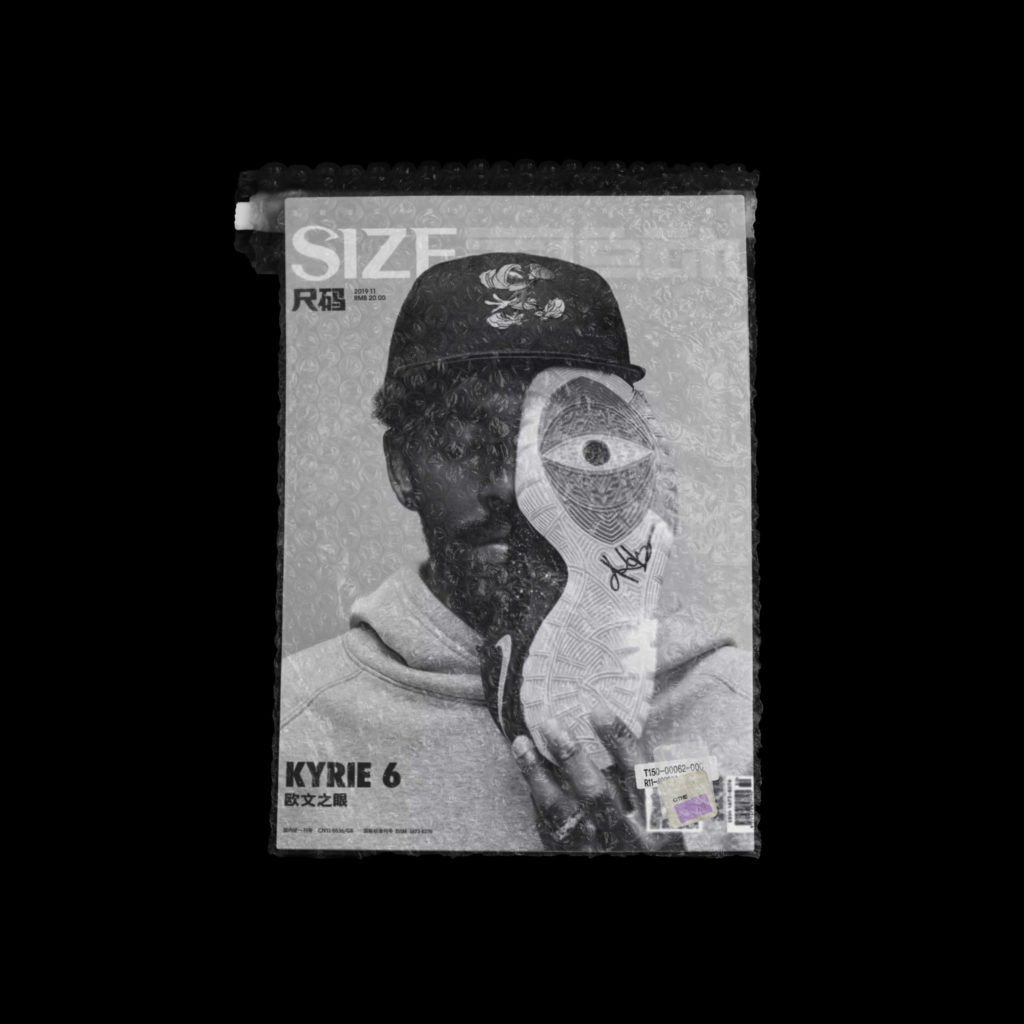

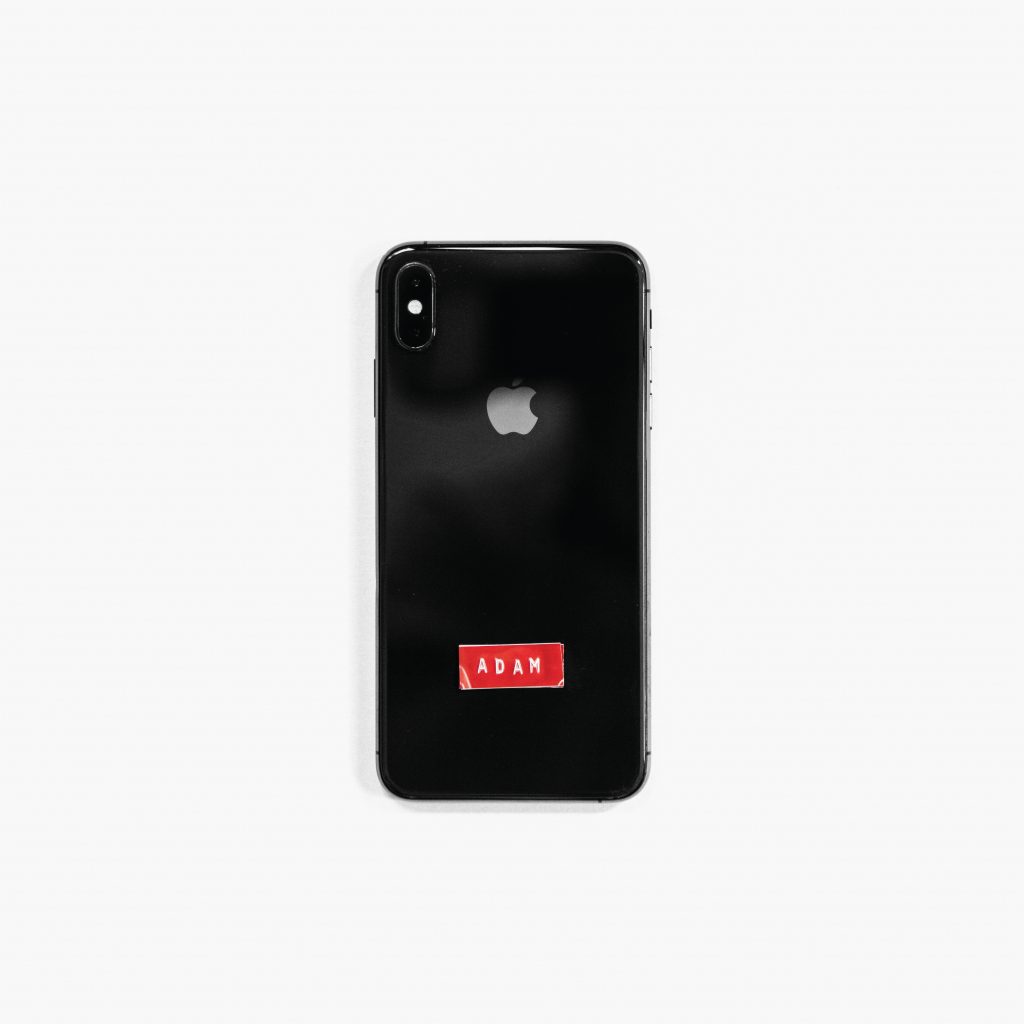
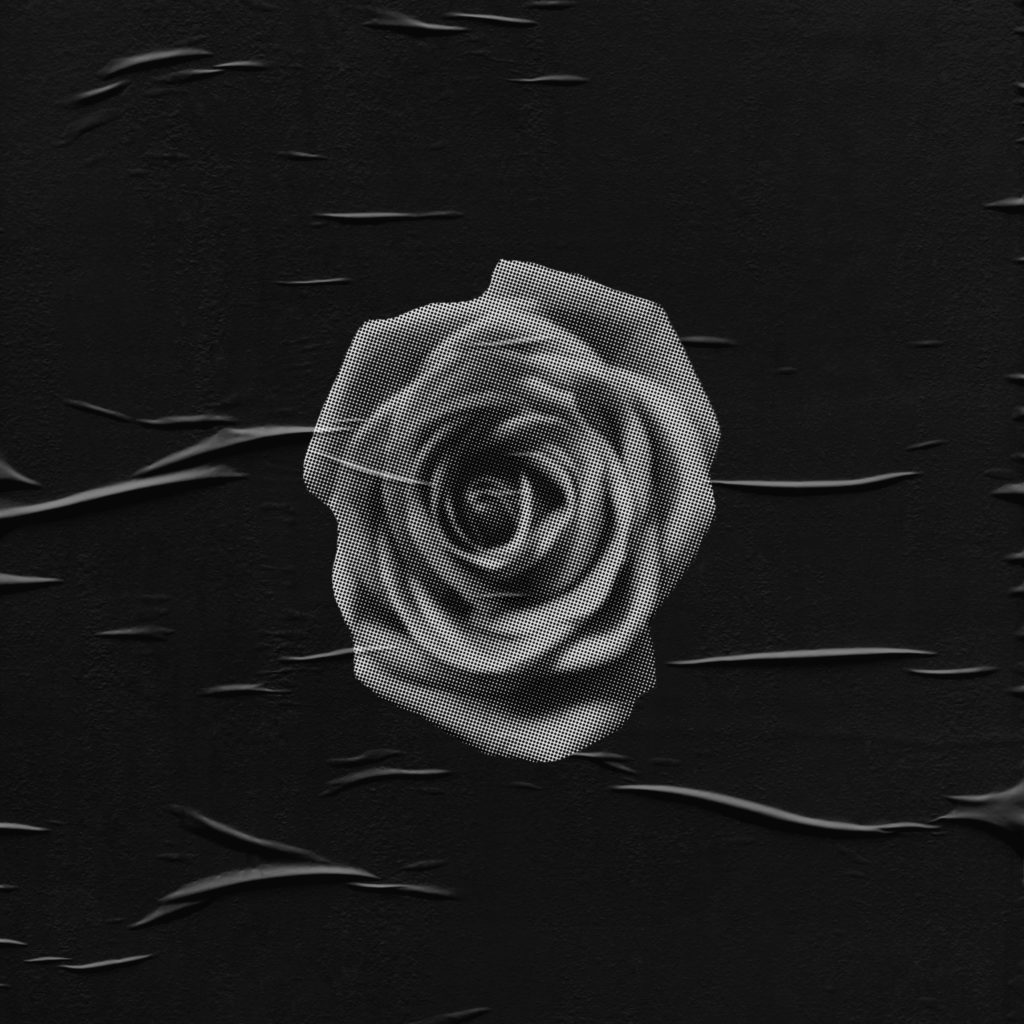
“To be honest, most of the jobs that we’ve done, everybody who’s doing it wants to be there for more than the check. They want to be there because they’re exercising something that is a big part of that purpose. They’re finding their own value through the process of exercising this talent they have.”
— Alex
Eugene: Yeah, it seemed weird because here we were trying to market a product that in itself wasn’t super well marketed, being the publication. But then people recognizing, “Oh, I would like to capture some of that essence for my own brand or for my own campaign.”
Alex: It’s really hard, I think, to do the sales stuff. It doesn’t matter how many times in the back of our head, I think we knew that it was something that — (Eugene: you mean like media sales) — like selling anything I think is a different mindset, trying to be Editor in Chiefs and editorial production while simultaneously figuring out how to articulate it in a way that a brand person could understand and then also with little audience backing for it, to justify what these brand guys are used to seeing from audience numbers and traffic numbers.
That’s ultimately where Adam Studios came in. It was like saying, “hey, on one hand,we’re doing all this stuff that we just want to do on MAEKAN” and on the other hand, we’re starting to get questions: “I like that. I like what you’re doing, but what does that even mean? If I see it and I like it and I work for a brand, how do I get a little bit of that?”
Eugene: Before we launched Adam — or I guess you were working on Adam as your own like layer, right? (Alex:Yeah.) So when people wanted to come to you and they wanted some work done, it was a layer that was put in place so that I could work with someone else on this versus it needing to be you the photographer going to shoot every single photo.
Alex: Yeah. Originally I had started Adam Studios as this entity. I basically used to tried to legitimize the freelance photography jobs that I was doing at the time. And it was in my head. It was just purely photo driven. So a brand might hit up Alex Maeland as an individual and say, “I want these photos taken.”
I think I wanted it to be a little bit more legitimate and I didn’t want it to just be me invoicing them to a bank account. Essentially, a lot of the leads were coming through people knowing “Alex as a photographer,” but also in the context of knowing about MAEKAN. So there was some element of deeper involvement that I think they were open to. And so some of those earlier jobs, we never did it ‘cause it was literally just me. I’ll show up with my camera and shoot, basically. That was it. That was the extent of it. And then the two coalesced at some point ‘cause I think we were trying to find alternative business models for MAEKAN (Eugene: We were poor as fuck. Pretty much.)
Yeah! On the other side I’m like, “okay, well this is working as the photo agency almost, but there’s other stuff that we have capabilities for. Why don’t we just use this all?” And I knew that if that was the case, there were certain things that I was good at and that I wanted to do and then there were certain things that I was not good at and that I didn’t want to do. And then on top of that, two is better than one in terms of what you can accomplish. Then that’s where you and I had the conversation where we were “hey, why don’t we make this an agency branch that supports the publication?”
Eugene: Yeah. I know that there was a conversation where “well, we could do this and we could be successful at it, but I don’t think you, Eugene, want to do it.” And I had to think about that. Maybe there was part of me that was trying to really take MAEKAN in its current iteration and hammer it into a round hole with a square peg, right? I came to the realization “well, you know what. I can continue this mindset and keep grinding out. Or we could find a way to change.”
I think a lot of things also happened at the time. We had a downsize with MAEKAN and there were certain calm cutbacks. It was to the point where maybe we need to take things head-on and realize what the situation was. And I was “Hey, you know what, let’s do it.” And this is the part that I tell a lot of people is that I think up until that point, right before shit hit the fan, we had to do cutbacks and whatnot.
I felt as though the thing that I started with you with MAEKAN, we were most definitely going off into different paths. You were focused on doing Adam Studios stuff, photography, work, whatnot. I was doing MAEKAN stuff in a certain capacity that I felt was where we wanted to go, but it was still becoming increasingly distant. And I think Adam Studios was a very good reminder that I always wanted MAEKAN to just be a thing that could last as long as possible. Not necessarily “it needs to be this by that period of time.” Now that we work much closer on Adam, it also has made our work together and MAEKAN a little bit closer.
(Alex: Yeah.) So I think that actually was the validation and/or what I wanted out of it was “hey, you know what? I started this shit with a partner.” I realized that we weren’t actually working that closely on it anymore. But now actually by virtue of things, kinda going to the pit stops and then re-emerging, it actually was better.
Alex: Yeah. There was definitely a period of time where it was probably like a pretty extended period of time actually, where I think you and I personally, we were so tightly knit the way we worked together in the early early MAEKAN days — literally sleeping on the same air mattress and traveling more than half the year together. And then I think there was a period of time where over the course of what maybe a year more where it was I think I was slowly looking for more things to engage me from a work standpoint whether it was utilizing my skills in different ways or whether it was like having a fresh project or goal to work on.
I think we were growing apart in a way during that period. Then when we had that light bulb moment, where it was “oh, hey. What if Adam became something that we both worked on?” — well, sorry, one of my first questions or concerns was “do you even want to do it?” And then your first question or concern back to that was “I could do it, but what would I do?” (laughs)
Eugene: Oh yeah, I do recall that!
Alex: I think neither of us wanted to hurt each other’s feelings or something. ‘Cause I was like “I mean, I want to do this, but do you want to do it?” And then you were well, “I kind of want to do it, but do you want me to do it?” (Alex and Eugene burst into laughter)
Eugene: No, I do remember that because I felt like I would be excess baggage. I’d be well, “what am I gonna do?”
Alex: I remember thinking pretty finite about it. Like, I remember thinking: “okay, it’s going to be ‘go take some photos’ or ‘design this logo’ and then…” In that like super small context,
I was sorta like “I don’t actually know what Eugene would do” — not as in “he can’t do anything,” but if that’s the two things we’re selling, like, you wouldn’t do those two things.
I think we didn’t necessarily predict what happens when you decide to move in a direction and just put it out there in a way that people can understand and say “okay, we’re doing this small agency thing. This is what we’re focused on.” Slowly and slowly, people start knocking on your door for more reasons than what you initially thought. And then what we found now — what is it, like, over almost a year?
Eugene: Not quite, but what I told you the other day, man, given the current circumstances, the world is enduring. We’re incredibly fortunate because I think maybe we have this other — how do you call it this — yeah, we have this diversity to the skill set that we bring. I think not only you and I, but also for the most part, you’re not necessarily part of the production crew. — like, you can actually strategize, you can produce.
I think that’s the one thing that if anyone out there is trying to think about starting their own agency, it’s “yeah, you can shoot photos, but at what point can you actually oversee the whole creative supply chain.” And I think that’s the one thing that once we started getting more involved in that you soon realize that ”oh, actually there is a role because the projects become more complex, they need more points of view.” They need someone that has the ability to go in and structure creative thinking that can be acted upon and executed.
Alex: Actually, to that point and like jumping on one of these other bullet points here like about the naming, the name “Adam” is my younger brother’s name. One thing that you always seem to gravitate towards and then one thing that I also always gravitated towards in our work life was always wanting to bring younger people who were hungry to learn or work or hustle along for the ride versus going for the best of the best of established people already. And part of that probably just comes from the fact we literally always worked in broke startup environments for the most part.
But also I think part of it is something that speaks to our identity that we like working that way. (Eugene: “next generation” type shit) Yeah. So in essence, that’s where the idea for the name “Adam” comes from being named after my younger brother and then also knowing that one of our longest standing employees at MAEKAN is Nate, your brother.
I think we’re always questioning “what’s next?” whether it’s what’s next for where we want to go? Who’s the next generation? Those things are constantly in our mind. And so that’s where the name came from, but then you see how we’re working now with Adam and how that’s started to manifest itself.
We’re constantly working on projects that we really try to get younger people involved with to give them work that they might not otherwise be able to have access to. The whole reason we started the in-house artist management thing is to help these people that are in our community figure it out because a lot of times, they were hitting us up on iMessage or WhatsApp or something anyways. It was like an easy way to just formalize it.
Eugene: Yeah. And I look at it and I think that maybe earlier on, we were just feeling our way through how do you properly — it sounds like it’s very much like a corporate term — but like how do you “onboard” new talent? And I think now that we’ve gotten to the point that we have projects of varying sizes, that you can definitely find opportunities to work with people in smaller things where the risk is a lot lower. And hopefully if they are capable or you work well together, you can soon bring them into bigger projects. (Alex: Yeah) And I think that’s worked quite well.
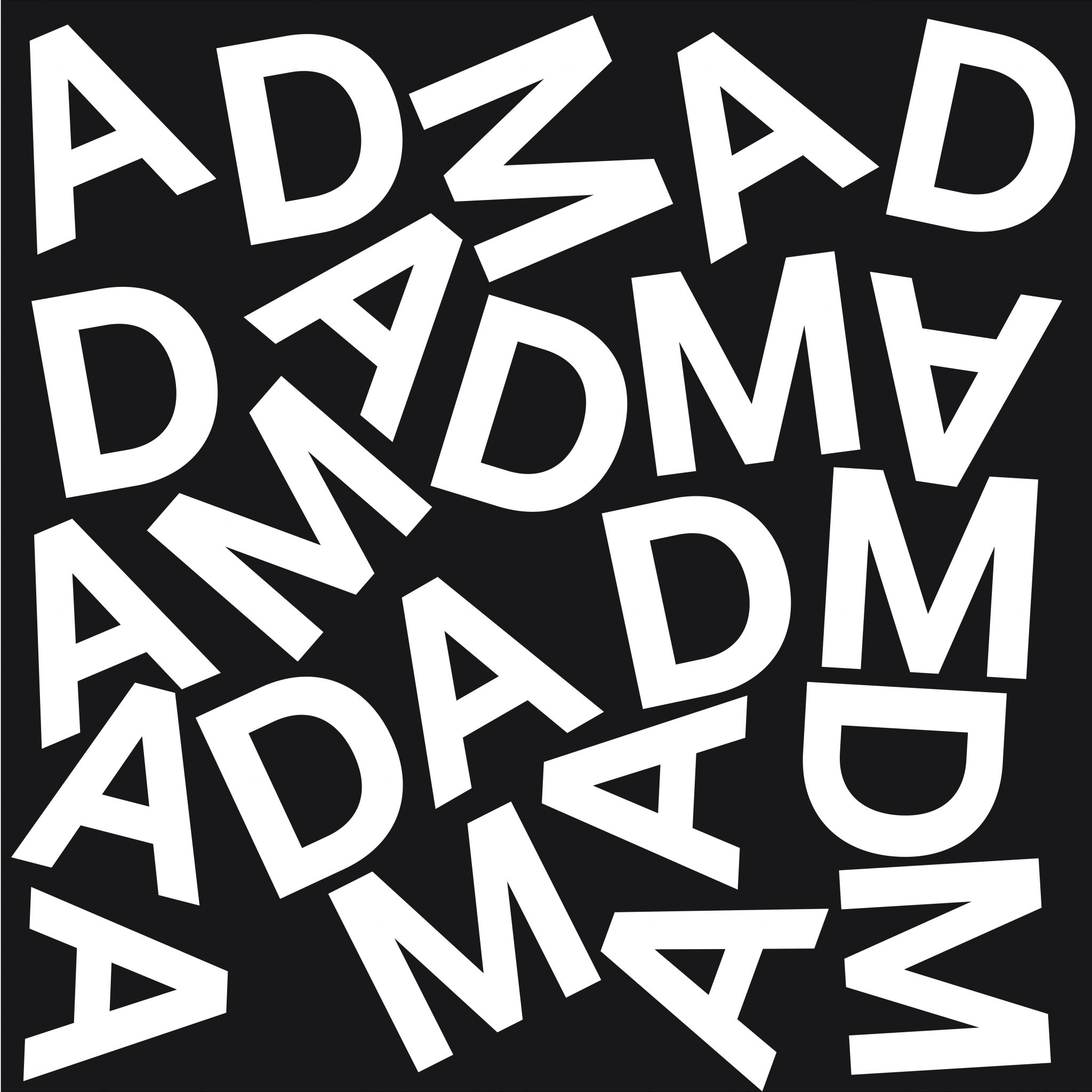
“And then one thing that I also always gravitated towards in our work life was always wanting to bring younger people who were hungry to learn or work or hustle along for the ride versus going for the best of the best of established people already. And part of that probably just comes from the fact we literally always worked in broke startup environments for the most part.”
— Alex
Alex: For sure. I mean, where Adam’s at right now, does it feel like what you thought it would be if we fast forward in around a year’s time?
Eugene: I think it actually far exceeded my expectations both from the type of work we’ve been able to get, the excitement around it, being able to work more closely with you again, but also I think there was a point in early 2019 when I just felt like shit wasn’t really working out for me personally. You weren’t sure where your next paycheck was coming from or where money was coming in.
And then suddenly now, it’s “oh, you know what? There’s some stability, financial stability.” That’s one thing, right? The second part of it is now that we have financial stability, it makes the future of MAEKAN a lot more straightforward. And if you aren’t familiar, the way that we’ve basically done is like, when we had to downsize early 2019, we basically cut costs as much as we could.
And then once Adam Studios was up and running, we started onboarding those costs. So basically Adam’s Studios for the most part funds MAEKAN, but then you also recognize as Adam studios becomes more successful, there’s always going to be that bedrock and that support there. And hopefully we get to a point where we can actually almost none of us, not necessarily relaunch MAEKAN, but get it to a point where it’s also financially stable on its own two feet, but that wasn’t possible unless we had made this shift.
So I think everything else in the end worked out and we’re able to do things almost in a more “pure” sense now with MAEKAN, because we don’t actually need to “chase money.” And we were chasing money before and it was a shitty feeling to not necessarily translate. And now we don’t really have to sell out for anything and we do the projects we think are fun — but we also know if we had more money in the “MAEKAN bank account,” where that would go.
Alex: Right. Well, also I think one thing that’s important to flag is that we’re also talking about it in the context of very small scale size, right? I think number one, I can’t necessarily speak to the large scale media because I’ve really never worked in a huge media conglomerate where you have the “luxury” of having people wear different hats, where like your editorial team doesn’t have to worry about your media buys or all this stuff — they’re more, more or less focused on one thing.
I think you’re probably going to continue to see that more — especially with everything that’s going on — there’s a little bit of reckoning of all the really top heavyweights, whether it’s publishers or companies, period, or agencies seeing the unsustainability of how they were running, like, if they have a month or two of an account pulled or something like that.
But I think you’re going to see more of these smaller scale versions of it. I actually think it cleared up the thinking so much more of understanding what MAEKAN was, because we can understand what it’s not. So when you understand what something’s not, it’s easy to have a better clarity on what it is.
And so for me, having the Adam layer has been easier to separate the two thinkings and also it actually has made MAEKAN better because we can literally just let MAEKAN be what it wants or needs to be based on where we’re at, based on where the world is at, instead of having to constantly juggle well, “we think this, but at the same time, we have to worry about this now.”
So Adam has almost like “protect” MAEKAN where ironically, originally we were afraid that if we started dabbling in “agency,” it was going to really almost like, fuck up MAEKAN because it was agency, it was branded and it was money driven, but I actually think it’s protected MAEKAN.
Eugene: Oh yeah, that’s for sure. Now that they’re very much “church and state,” in the most clearest sense. ’Cause they’re not even both separated in terms of, what they represent, but also they’re kind of adjacent companies. They’re not the same company, so to speak, so that is almost even better.
Not the whole thing that we do right now. Maybe wouldn’t be that viable for everyone else, but I think that the synergy that has come from it, it was actually quite helpful. I think you see a lot of these emerge: it’s either an agency that does some sort of a media play or the reverse, like let’s say the New York times will have T Studios where they’ll have a media company and they’ll have an agency. This has been a nice synergy and there’s a calling card. And to that point, I made that remark that you were working on a client project, “hey, this feels like things that MAEKAN started doing like four years ago.”
And now we finally have a a way to monetize it, right? Before embarking on Adam’s studios, what did you think it’d be like and what has been the reality?
Alex: Good question, Eugene.
Eugene: Hey, I stole that from Guy Ross or somebody! (Alex: Oh, really?) “How I Built This” or—I forget. One of those guys.
Alex: I think if I’m honest, I was almost narrow-minded in how I was thinking about it at the time. I was thinking more manual labor about it for myself. I literally thought that it was I was just gonna be the one shooting everything and I’d have you helping manage clients and do a lot of the back end stuff and helping do the strategy to things and making sure that there was a sound strategy element to it: Not just like pretty photos.
But I actually envisioned it being more like me just going set-to-set and shoot-to-shoot or like, being in front of my laptop in illustrator or Photoshop. I don’t think I thought about it enough to think, “wait, if we do this properly, then Eugene and Alex can orchestrate and delegate and get more people involved, get more people work, do more projects that you could never do.”
If I was just four or five days a week on set, working on one specific thing, or in front of a computer, I have to give Decatur Dan credit from Where It’s Greater, because he told me one time on the phone early on. He said in his Georgian accent — which I won’t try to repeat.
Eugene: I think you should do it!
Alex: I can’t do Dan’s accent! He’s like, (attempts Georgian accent) “Hey, man. You got—.” That’s not how he sounds. (laughs)
Eugene: Nah, he’s kinda got a high-pitched voice, kinda.
Alex: Nah. Anyways, Dan said, “Alex, you have to remember, like, photography is a young man’s game. You can only be in one place at one time, and you’re only as good really as your last job or the next person coming up. Do you want to be pulling the photo trigger every single day of your life for the next, however long whether it’s for somebody else or for your own agency? Think about what you want to do with this thing.”
I don’t know if he intended it to be so like, life-altering, but I really took that to heart now. So sometimes when I think about that, I think “okay well, I’m the one to shoot it, maybe we’ll save X number of dollars here to have Alex take these photos. But during that, 10-hour day, what might Alex be doing otherwise that isn’t getting done? So neither is right or wrong. It’s just what do you want from the thing that you’re spending your time doing now?” And there’s a really long wave.
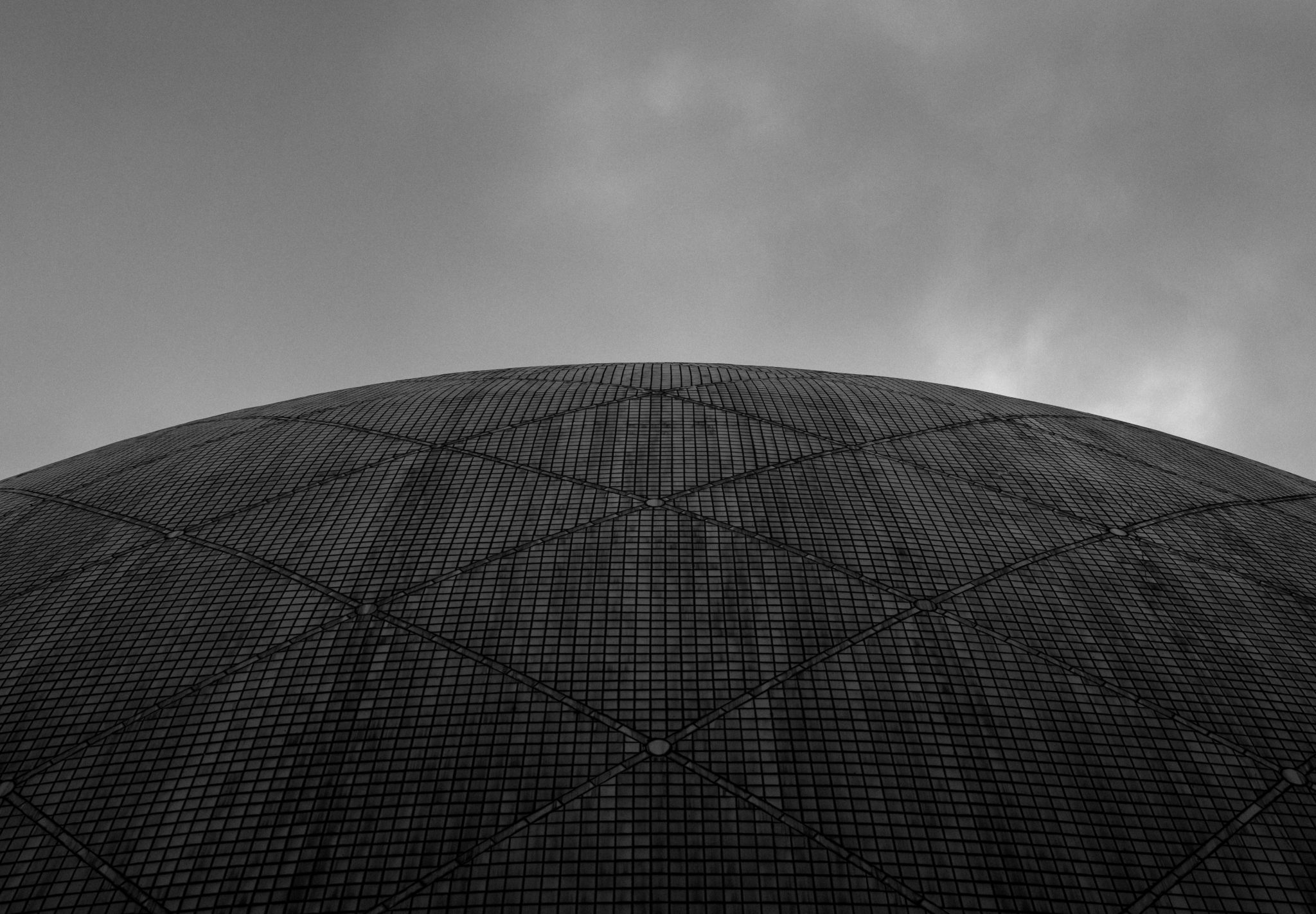
Photo by Christopher Lim
“I actually think it cleared up the thinking so much more of understanding what MAEKAN was, because we can understand what it’s not. So when you understand what something’s not, it’s easy to have a better clarity on what it is.”
— Alex
Eugene: Yeah. If I turn the question back on myself, I felt like I was an Alley-oop anyway. It was like, well, “Alex is already making money from this. I’m in a tough spot. Let’s do it right and try it out.” And I think there was also part of me at the time that maybe psychologically was beating myself up because we couldn’t get, MAEKAN into some a financial goal. Right?
And I think now looking back a year later, I was thinking “oh shit, maybe it was not necessarily me or my inability to necessarily do something in the creative world and make money off of it” so much as maybe it was with the wrong product. Or maybe it was that the learnings from MAEKAN we’re able to actually parlay into Adam in a way where it’s like actually there’s both value for our services or what we do and we actually can run a business outfit, which I feel now I feel way more comfortable with passing on knowledge or experience. I think you touched upon it too.
I want us to get to a point where we don’t have to be the ones pressing the trigger or doing XYZ. It’s things that are more strategic and can rely on experience — not because we’re too good to do that. The reason why I want to move past that is because I think that our value now as we get older as Dan said, a young man’s game is how do we amass as much insight and knowledge that we can then repackage in a way that — we started Adam studios in what, our thirties, right — can someone take this knowledge and start something in their twenties and their mid-twenties and advance culture or whatever you want to call it?
Alex: For sure. I mean also I think business stuff aside and “culture is this cool thing,” I think I just derive a lot of value from giving people purpose and helping them uncover that purpose even if it is in a commercial context. You do a job with a brand because ultimately, everybody wants to get paid. To be honest, most of the jobs that we’ve done, everybody who’s doing it wants to be there for more than the check.
They want to be there because they’re exercising something that is a big part of that purpose. They’re finding their own value through the process of exercising this talent they have. I think that’s super important, especially nowadays where there’s a lot of really shitty places to do that too, you know? So if we can play a very small part of creating an environment that’s half decent at the very least to work inside of, I think that’s still a win.
Eugene: Yeah. Before we cap things off, I definitely want to thank some of the people that enable us to get here because without them we probably wouldn’t have even had the opportunity to continue on this trajectory and/or even have the choice, right? Big shout outs to Mike West, Julia Huang, Intertrend, John, Jay Kogawa, Tanya. Yeah. Also you really have to acknowledge the MAEKAN peeps that got us here. People like Scott, Elphick, Cody, Charis, Nathan, Gill, Chris, Alek, Willie. Like, these are actually people that I don’t know whether they know it or not, but if it wasn’t where some of their contributions, like who knows, we probably wouldn’t even have had the chance to continue this conversation.
Alex: I credit a lot to Instrument. Like, early on too, most like—
Eugene: —for people that aren’t familiar, Instrument was someone that took us under their wing for an internal project.
Alex: Basically, they helped us build MAEKAN the brand and the website. So doing tons of workshops over the course of a summer in Portland, going through these, exercises and little sessions that we didn’t even really know existed at the time of taking an essence of an idea and then laying it out on a table and then putting the pieces back together to something succinct, helping you and I take what we had at the root of it, but we didn’t quite know how to get it all out there into the world in a way that like started to make sense. And also knowing how they treated us as a client — as a non-paying client, much less — really helped me understand how to treat clients.
Eugene: Yeah, it’s true. It’s something that I look back on and I’m glad we’re still around because at least they can take solace in the fact that we weren’t some fly-by operation that closed up shop like a year later, you know? (laughter) But shoutout to Justin, JD, Vin, Gorman, Tim Kammera, Zach, DC, BK. This is something that it hasn’t been the easiest, but we’re more than happy to share this process. If anyone has any questions feel free to reach out.
Alex: Yup. Signing off!





























